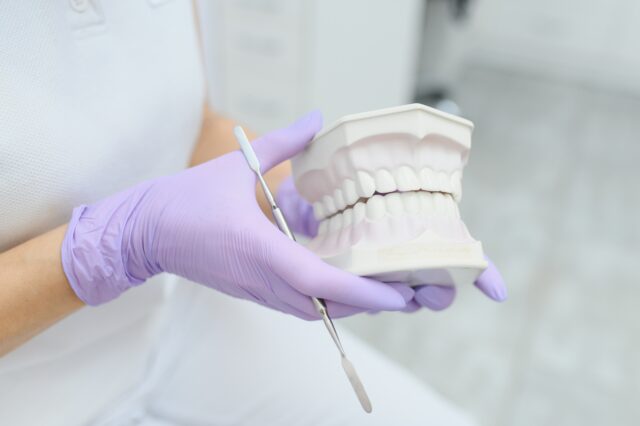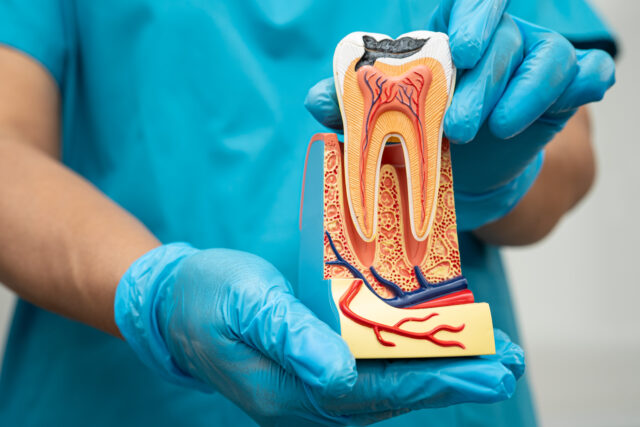What causes wisdom tooth pain relief?
Some of the factors that may cause wisdom tooth pain relief include impaction, gum infection, pressure, tooth decay and gum disease. Impaction is a complication that arises when the wisdom teeth have no adequate space to erupt accordingly resulting in pain, swelling and discomfort. Another frequent trigger is gum infection, which may cause the bacteria to infect the surrounding gum tissue of the wisdom teeth, and cause infections and inflammation. Gum infection can also be caused as a result of poor oral hygiene practices or gum disease.
Another usual trigger is pressure wherein the wisdom teeth can pop against other teeth, creating pressure and pain. This may happen when the wisdom teeth are out of position or there is an insufficient space in the jawbone to erupt well. Plaque deposits on teeth may lead to decay of the teeth, which may not be eliminated by proper brushing and flossing practices; hence, it is a potential trigger. Tooth decay may result in an abscess or infection, which is quite painful and swells badly, unless treated.
Finally, gum disease, or gingivitis and periodontitis, may result in gum disease in the area of the wisdom teeth that brings pain and swelling. The bacterial infection results in the inflammation of the gums and the bone around the teeth and hence loss of teeth, abscesses, and even heart disease in case of non-treatment. Regular dental check-ups and good oral hygiene habits are essential for preventing gum disease and maintaining healthy gums around the wisdom teeth.

Immediate Relief: Home Remedies for Wisdom Teeth Pain
Although a dentist must offer a definite solution to the problem of wisdom tooth pain relief, home remedies will also offer some short-term relief. Swelling and bacteria can be reduced by rinsing your mouth using warm salty water many times during the day. A cold compress can also be applied to the cheek to relieve the pain and decrease the inflammation.
Other solutions would be taking over-the-counter pain killers like ibuprofen, clove oil owing to its anesthetic qualities, and pain-relaxing peppermint tea, which may help provide some temporary relief to sore gums. It is important to remember that these remedies do not replace professional dental care in that they are short-term solutions.
When to visit a Dentist: The Signs of Serious Complications.
It is necessary to know the signals that show that one has to visit the dentist. In case of wisdom tooth pain relief, which is accompanied by swelling in the area of the gums, inability to breathe or swallow, fever or pus, then it can be a symptom of a severe infection that has to be treated by a professional immediately.
The pain must not be neglected even after being cured at home. Also, in case you see cysts, tumors, damaged adjacent teeth, gum disease these are all significant indicators that you should visit your dentist immediately.
Wisdom Teeth: Professional Interventions.
In case of continuous troubles with wisdom teeth, a dentist or an oral surgeon can prescribe some professional treatment. The wisdom teeth extraction is the most widespread form of treatment, it is the surgical process of removing one or more wisdom teeth.
Additional medications could involve antibiotics to fight infections or over-the-counter pain relievers of prescription strength. There is also the aspect of managing proper after care after any professional treatment that you can get advice on by your dentist in order to enjoy a smooth recovery.
Preventing Future Wisdom Tooth Pain: Tips and Practices
The first place to prevent pain in the wisdom teeth is through to take an early action in maintaining your mouth health. Adhere to an effective oral health care schedule, avoid sweetened food which may cause cavities and use dental products prescribed by your dentist.
Dental examinations are also important in keeping track of the well-being of your wisdom teeth, as well as identifying any possible problems before they arise. Also, talk with your dentist concerning a customized approach to your wisdom teeth, that could be planned at an opportune time to have them removed before they cause issues.
The Reasonableness of routine Dental Care to avoid Wisdom Teeth Complications.
The routine of taking care of your teeth is important to the general oral health and especially when it comes to avoiding issues with your wisdom teeth. Regular check-ups give your dentist a chance to check up on the status of your wisdom teeth as well as other possible problems before it develops into a problem. Maintaining good oral hygiene, like brushing, flossing, and taking mouthwash will help decrease the chances of infection and inflammation in the area of your wisdom tooth pain relief.
Also, a dental check-up regularly would in most cases involve professional cleanings that could help remove the accumulation of plaque and tartar, which can be difficult to handle with a brush only. This plays a crucial role in the prevention of gum disease that may aggravate the pain of this wisdom tooth pain relief causing further problems. Dentists are also a good source of information in terms of diet and habits that can affect the well being of your wisdom tooth pain relief.
Other Advice on the management of wisdom teeth pain.
Along with the abovementioned precautions, you can use some other tips that will help you cope with the wisdom tooth pain relief:
- Eat soft foods: Soft foods include painful foods and should not be chewed.
- Use irritants: Do not use tobacco products or eat spicy foods with irritating gums.
- Relaxation techniques: Stress may make pain worse; deep breathing or meditation are practice relaxation techniques that may be used to help combat stress.
- Apply topical anesthetics: Put topical anesthetics like Orajel or Anbesol on the gums before eating or during eating.
These tips and practices will help you to successfully cope with the pain caused by wisdom teeth and avoid the development of complications. Always remember to consult your dentist in case there is chronic or unremitting pain in your wisdom tooth pain relief.













